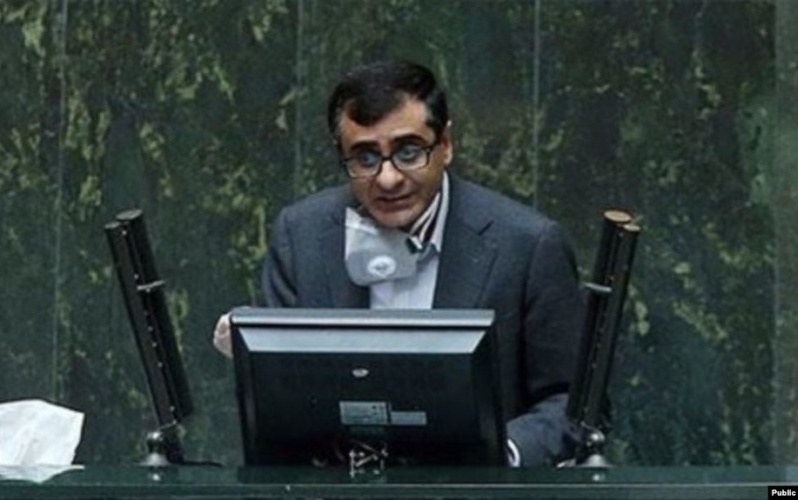Parliament’s top advisor has painted a bleak picture of Iran’s economic situation amid long-term problems and US sanctions.
Mohammad Qasemi (pictured), the head of the Parliamentary Research Center, spoke on the floor of the Majlis on Sunday about the crisis around productivity, investment, trade, and employmnet. He warned that, with the American restrictions likely to be long-term, “Iran should reconsider how to manage its response.”
The International Monetary Fund has projected that Iran’s GDP, having fallen 7.6% in 2019, will contract 11% this year amid the Coronavirus pandemic which has officially claimed almost 8,000 Iranian lives.
Highlighting years of decline before the Trump Administration imposed comprehensive sanctions in November 2018, Qasemi said capital investment in the oil, gas, industry, mining, construction, and communications sector had been negative since 2012.
He cited a long-term average inflation rate of 20%, even as most countries had “resolved” the issue, and he noted that real per-capita income had fallen by a third since 2011.
There have been recurrent protests over economic conditions, with mass rallies across the country last November after the Government suddenly raised gasoline prices by 50% to 200%. Security forces put down the demonstrations, killing hundreds of civilians.
See Iran Daily, June 1: Is Regime About to Acknowledge Killing Protesters?
The advisor warned that even if the Government tried to remedy the situation, including its debt of about $120 billion, the measures would be ineffective without reform of the banking system.

